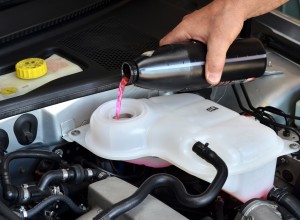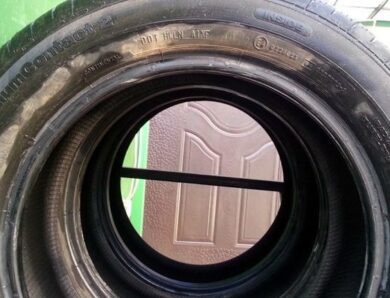Condition of spark plugs in appearance
Spark plugs are an integral part of the ignition system and are used to ignite the fuel-air mixture in the engine cylinders from electric sparks, which is formed between the electrodes of the spark plug. Spark plugs must be changed each 30-90 thousand. km, which directly depends on the operating conditions of the engine, type of installed candles and materials of their manufacture.
We also recommend reading the article about it, how to choose spark plugs by car brand. In this article you will learn about the features of the selection of spark plugs by car model, as well as the choice of the optimal material for making spark plugs for a particular engine.
Why it is optimal to change spark plugs ahead of schedule
Engine malfunctions indicate the need to check the spark plugs. As already mentioned, spark plugs serve from 30 thousand. km, but this is only a theory, which is based on ideal operating conditions of the internal combustion engine. In practice, the average service life of budget single-electrode candles is not more 15-20 thousand. km. mileage.
The reduction of the planned resource of spark plugs is strongly influenced by the quality of domestic fuel, city driving at low speeds, frequent and long operation of the engine at idle speed. For this reason, even the most expensive multi-electrode iridium or platinum spark plugs are recommended to change to 15-20 thousand. km. previously declared service life. Counterfeit candles or low-quality products can also be sold, which usually do not even come out 10 thousand. km.
Spark plug malfunction signs
Let's start with that, that a working engine must run stably, smooth and stable as at idle, and under load. Complications of starting the engine, unstable operation of the engine at idle speed and in motion, increased fuel consumption, power reduction, the appearance of noise and vibration during the operation of the internal combustion engine is a list of major symptoms, which may indicate problems with the spark plugs.
Regular inspections are required to monitor the condition of the spark plugs. It is desirable to carry out this procedure in parallel with oil change on MOT, that is, through 10-15 thousand. km. As for the average driver, passing by 30 thousand. km. for 12 months, in this case, you should change the usual single-electrode spark plugs at least 2 times a year.
How to check spark plugs
Signs of contamination or failure of the spark plugs are manifested in the form of engine failures, the engine with dirty or problem spark plugs triples. This is what happens as a result, that all candles usually fail. Interruptions begin only in one or two cylinders. First of all it is necessary to define a candle, which failed. There are several ways to check the sparking of candles:
- use a device or tester to check the spark plugs;
- self-check spark plugs;
You need to remove the candles to check, although there are ways to diagnose spark plugs on the car. Before the procedure, which involves withdrawal, turn off the ignition and prepare a special spark plug or socket wrench. You will need a tool to unscrew the spark plugs. Then you need to inspect the high-voltage ignition armor. These wires usually have special markings, which contains information about the cylinder number. In that case, if there is no such marking, it is necessary to mark high-voltage candle wires in an accessible way.
We also recommend reading the article about it, how to check high voltage ignition wires with your own hands. In this article you will learn about different ways to self-test car spark plug armor.
The next step is to remove the tips (caps) from spark plugs. pay attention, do not pull on the high voltage wire during this procedure, as it can damage the armor lines. To remove it is necessary to hold the tip itself. After removing the candle caps, you can unscrew the candles with a wrench. V-shaped motors will require a long drive key, similar to dynamometer. An elongated collar is also suitable.
Keep in mind when shooting, which cylinder corresponds to each twisted candle, as the further inspection will allow to define possible malfunctions not only of candles, but also the engine according to the condition of the spark plugs. The inspection of the spark plugs should begin with a visual inspection and inspection of the insulator, as well as electrodes. No cracking or melting is allowed, as well as other noticeable defects. Then the candles are installed on a special stand or checked by the device. As mentioned above, motorists also check the spark plug directly on the car or use a multimeter. We will talk about different ways of checking later.
Checking the spark plugs for sparks
To test the spark plug for sparks, disconnect the high-voltage wires one at a time, which connect the spark plugs and the distributor breaker. This must be done on a running car. After removing the wire, listen to the engine. If the operation of the motor has not changed, then it means, what was found was a failed item. If, when, after disconnection, the motor starts to run even less stably, the test must be continued.
The next way to check the spark on the spark plugs is, that you need to remove the high voltage wire, then the spark plug is unscrewed. Then the candle is inserted back into the cap armor and raised to the cylinder block. As a result, a clearly visible spark should appear on the candle, which will be accompanied by a characteristic crack. This method allows you to diagnose the operation of the ignition system, wire and candle.
As for checking the spark plug with a multimeter, then this method is ineffective and can only detect a short circuit inside the spark plug. To check one contact of the tester is attached to the base of the candle (threaded part), and another to the entrance of the candle. The resulting spark should pierce from contact to contact on 3-4 mm.
Let's add, that it is more correct to check high-voltage ignition wires with a multimeter. This device is able to measure the resistance of the wire, then it should be compared with the nominal. A drop in voltage will indicate the need to replace the armor.
Another way is to check the spark plugs with a "gun". Such a "gun" for checking candles is a test bench, which is available from candle sellers. This equipment allows you to check the spark plugs under pressure, that is, partially simulates their operating conditions in the engine.
Check the candles on the stand is as follows:
- the spark plug is inserted into the groove;
- then a special cap is put on it;
- then it remains to press the trigger of the "gun" to check the candles;
The appearance of a spark on the electrodes and the ignition of the signal lamp with a high probability indicates the serviceability of the spark plug, although this method of verification cannot guarantee full operability. The point is, that the pressure on the stand and in the engine is different. For this reason, a spark plug with a good spark, previously tested on the stand, may still not work after installation on the engine.. If the candle does not work on the stand at first, then this element should be replaced for the obvious cause of the fault.
How to clean the spark plugs yourself and set the gap between the electrodes
After removing the external inspection, the spark plug must be carefully cleaned of dirt, soot, soot and deposits. This can be done mechanically, with a brush, which has a bristle of medium hardness. It is still allowed to use abrasive.
The mechanical method allows you to qualitatively remove scale, but the performance of the spark plug usually gets worse. Such cleaning usually leads to scratches, which then lead to overheating of the candle. For this reason, it is necessary to clean the spark plugs from plaque as gently as possible.
You can also clean spark plugs chemically:
- the candle is degreased and washed in gasoline;
- then the candles are dried from 30 to 60 min;
- then the candles are placed in a solution of ammonium acetate on 30-40 min;
After removal from the cleaning solution, the spark plugs are cleaned with a soft bristle brush and dried again. 30 min. Cleaning heavily soiled candles will be of lower quality compared to the mechanical method, and will require more time.
The advantage is the reduced risk of mechanical damage. The end of the cleaning is to check the gap between the electrodes of the spark plugs. The gap between the electrodes of the spark plug and after mechanical cleaning is estimated.
The normal clearance should not differ from the mark 0.7 mm This gap must be checked with a special probe. If the gap is different, it needs to be adjusted. The spark plug gap is adjusted with a special tool, and the process itself presupposes that, that the side electrode is bent or bent away from the Central electrode. Let's add, that it is forbidden to bend the central electrode, and the bending of the side electrode is carried out with extreme caution.
The condition of the engine by the color of the spark plugs
The serviceability of the engine and spark plugs is determined by the color of the plaque, which is present on the electrodes. We will not describe all possible options for diagnosing the condition of the engine by the color of the spark plugs, since this is the subject of a large separate article. Note only, that the working candle normally has a light grayish-brown plaque.
The appearance of dry black soot on the electrode indicates the need to check the fuel system of the internal combustion engine. Such deposits are formed in the case of engine operation on a highly enriched mixture. The spark plug in this case can be cleaned and screwed back into the engine for further use.
The presence of a white plaque on the electrode of the spark plug with glare is evidence of overheating of the spark plugs. This can be due to incorrect selection of spark plugs for the hardened number, and as a result of overheating of the motor or the spark plug. In the latter case, you should check the size of the electrode gap. Candles with white plaque must not be reused, must be replaced.
Installation of the cleaned or new spark plugs the engine at an initial stage is made by hands. In other words, candles need to "earn" by hand, that is, carefully screw into the candle wells without using a wrench. If the candle is easily screwed on the thread, then the element can be tightened with a wrench until the contact of the conical part with the cylinder head.
Remember, when twisting the spark plugs it is highly desirable to strictly adhere to the tightening torque, which is specified in the technical documentation for a specific engine type! Constriction of the spark plug may lead to the need for further repair of the cylinder head and other consequences. As for weakly twisted candles, untwisted spark plug can cause malfunction of the internal combustion engine.
Tips and tricks
If the new spark plugs change color quickly after installation, overgrown with soot and again caused engine failures, then such options are possible:
- spark plugs are incorrectly selected;
- purchased a counterfeit or defective product;
- the engine is powered by low quality gasoline or oil;
- there are engine malfunctions, which quickly disable new candles;
Finally, let's add again, that spark plug, and candle high-voltage wires are "consumables", that is, they need to be completely changed at regular intervals. If the engine has previously been faulty, which in parallel disabled the candles, then after elimination of such breakage of the motor it is recommended to replace also a set of spark plugs.




